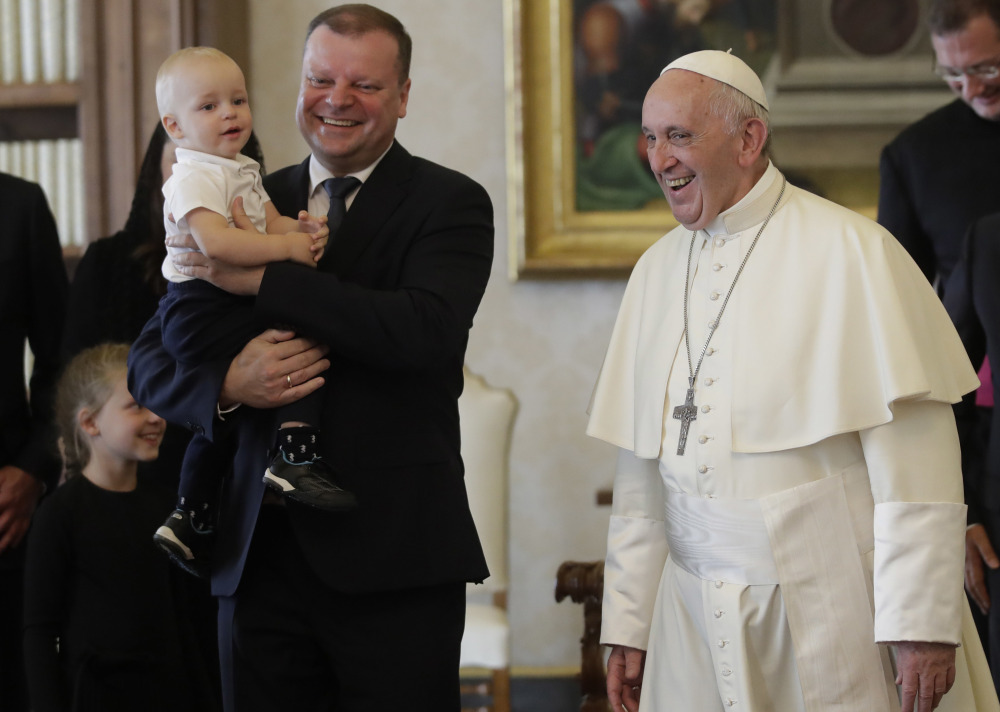VATICAN CITY — Pope Francis on Friday denounced the proliferation of adult and child pornography on the internet and demanded better protections for children online – even as the Vatican confronts its own cross-border child porn investigation involving a top papal envoy.
Francis met with participants of a Catholic Church-backed international conference on fighting child pornography and protecting children in the digital age.
He fully backed their proposals to toughen sanctions against those who abuse and exploit children online and improve technological filters to prevent young people from accessing porn online.
Francis said the Catholic Church knew well the “grave error” of trying to conceal the problem of sexual abuse – a reference to the church’s long history of having priests who rape and molest children and bishops who cover up for them. Several well-known cases have involved priests having child porn, or photographing their victims.
Francis said an international, cross-disciplinary approach was needed to protect children from the dark net and the “corruption of their minds and violence against their bodies.”
Using terms that are certainly new to papal lexicon, Francis denounced “extreme pornography” on the web that adults, and increasingly children consume, and the increasing use of “sexting” and “sextortion” among the estimated 800 million minors who navigate the internet.
“We would be seriously deluding ourselves were we to think that a society where an abnormal consumption of internet sex is rampant among adults could be capable of effectively protecting minors,” he said.
The conference was planned some two years ago, but it unfolded precisely at the time when the Vatican is facing back-to-back child sex scandals: One of Francis’ top advisers, Cardinal George Pell, recently took leave to face old abuse charges in his native Australia, while in August the Vatican recalled a senior diplomat from its embassy in Washington who got embroiled in a child porn investigation.
Canadian police have issued an arrest warrant for Monsignor Carlo Capella, accusing him of accessing, possessing and distributing child pornography during a visit to an Ontario church over Christmas. He is now in the Vatican, where prosecutors have opened an investigation.
The Vatican in 2013 criminalized child porn possession, distribution and production, with sanctions varying from up to two years and a fine of $11,170 to 12 years and a fine of $279,250.
Some U.S. church officials and critics balked at the recall, saying the Vatican should have waived diplomatic immunity and let Capella face charges in the United States or Canada. Vatican officials have defended the recall as consistent with common diplomatic practice and suggested that Capella will face a criminal trial in the Vatican if the evidence warrants it.
Participants at the congress offered sobering statistics about the problem: Last year, Interpol identified five child victims of online abuse every day, while the Internet Watch Foundation identified more than 57,000 websites containing child sexual abuse images.
Francis said he wanted the conference participants to remember that children look to adults, with light in their eyes and trust in their heart, to protect them.
“What are we doing to make sure they are not robbed of this light, to ensure that those eyes will not be darkened and corrupted by what they will find on the internet?”
Send questions/comments to the editors.



Comments are no longer available on this story